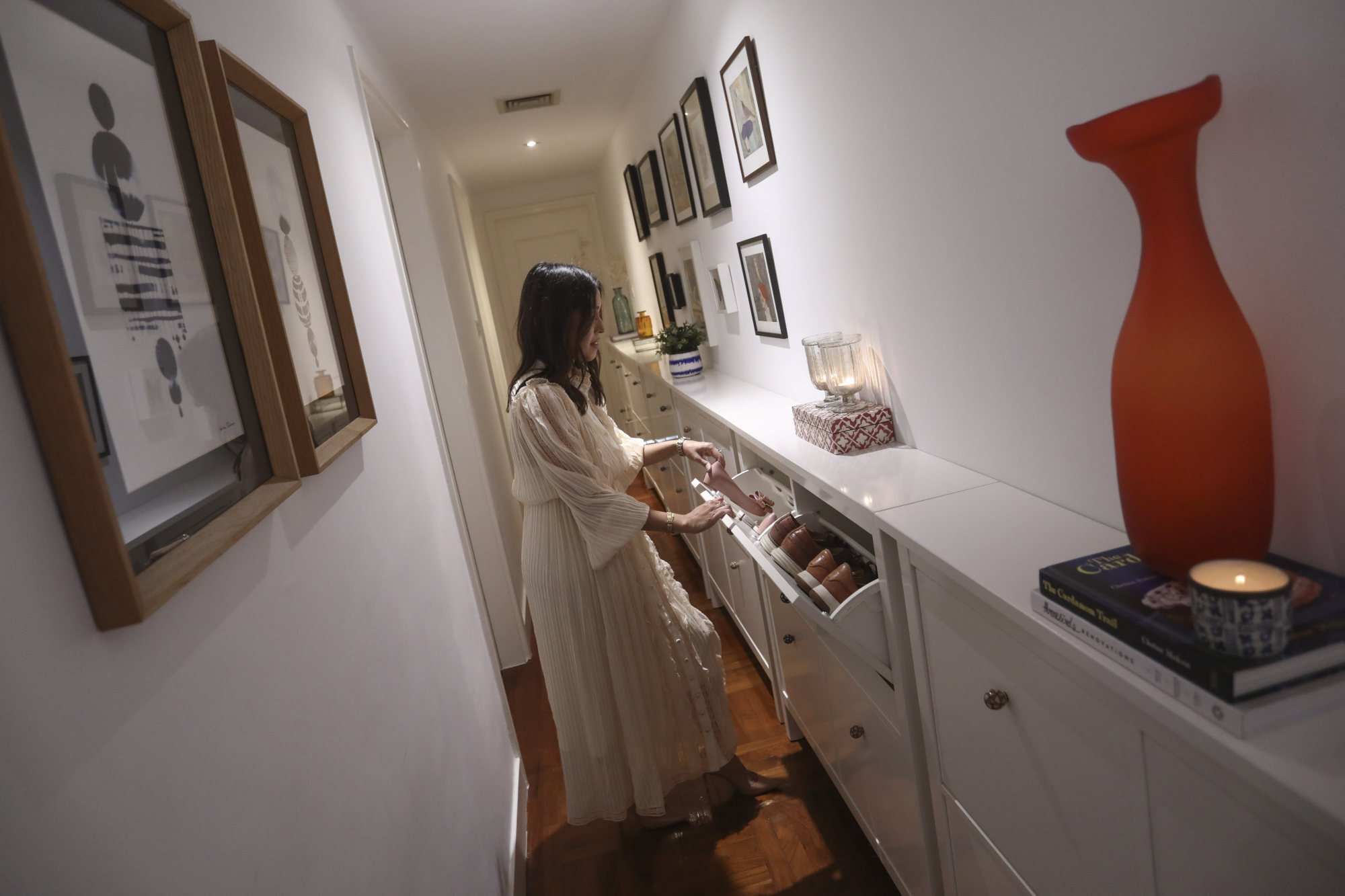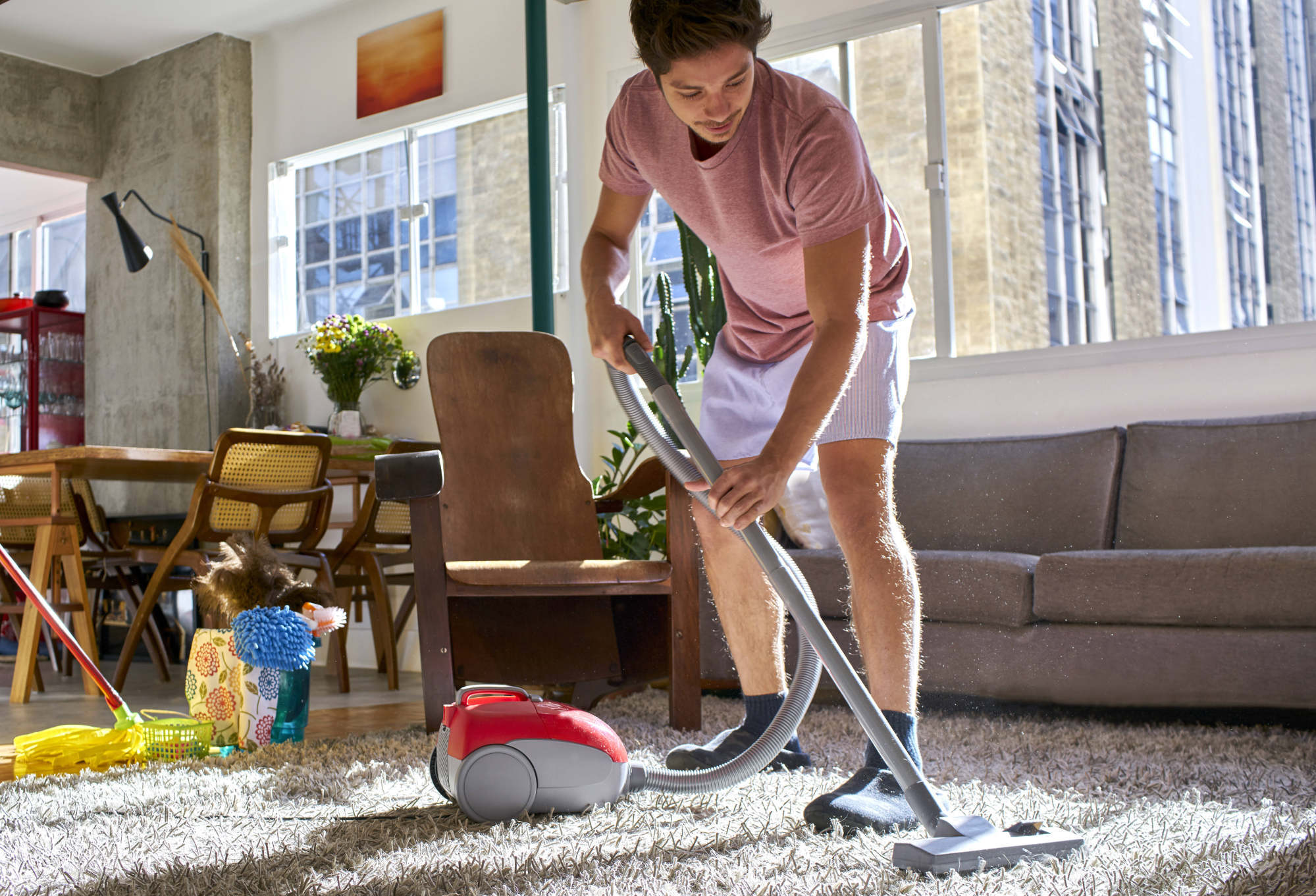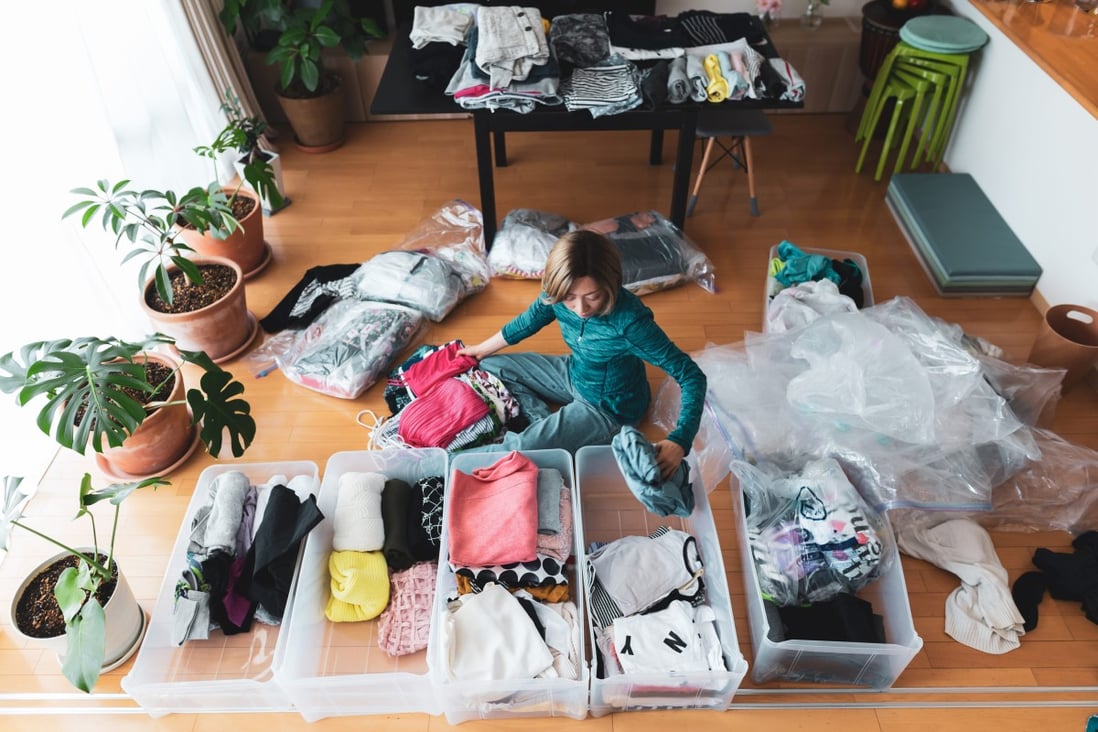Declutter your home and clear your mind: how a spring clean helps you stay calm and improves mental well-being
https://www.scmp.com/lifestyle/health-wellness/article/3171687/declutter-your-home-and-clear-your-mind-how-spring-clean?module=service_journalism_hk&pgtype=homepage
Declutter your home and clear your mind: how a spring clean helps you stay calm and improves mental well-being
- If you are stuck at home because of Covid-19, why not tackle those household tasks you’ve been putting off?
- If you are too anxious or depressed for such a big job, experts recommend starting small and doing a bit at a time
For Moushumi Khara, keeping her home clean and in order is a form of self-care. She organises her wardrobe, pantry and storage areas every couple of weeks and declutters regularly. She finds these tasks cathartic.
“My home is my sanctuary, so I strive to make it ideal for my family to live, work, rest and play in,” shares the Hong Kong-based stylist and founder of The Lifestyle Editor, a company that offers personal and home styling solutions.
“Every now and then, I review what I have, and if something no longer serves my needs, I either resell or donate it. I find this process of editing and purging quite emotionally therapeutic and freeing.
“I truly believe that our space affects our mental well-being. After a long, tiring day outside, returning to an organised and tidy home instantly calms me. I work from home sometimes, and when my desk is neat and free of clutter, I feel creative and inspired and get more done.”

With so many of us stuck indoors thanks to the coronavirus, there’s no better time to turn our home into a space of healing and happiness. And if you’re going through an anxious time because of the pandemic, cleaning and decluttering might make you feel better.
According to research, clutter can have a huge effect on our emotional well-being. A 2011 study by Princeton University in the US, for instance, found that living in a cluttered space, with too many nagging visual stimuli (piles of dirty laundry or a sink full of unwashed dishes), can overwhelm and tire the brain, affecting its ability to focus and complete projects efficiently.
Another study, published in 2010 in the Personality and Social Psychology Bulletin, found that people who described their home as “cluttered” or “full of unfinished projects” were more likely to feel depressed than people who used words like “restful” and “restorative” to describe their living space. Individuals with cluttered homes also expressed higher levels of stress.
Simply focusing on the chore at hand may have an emotionally calming effect. A study published in 2014 in the journal Mindfulness found that people who engaged in mindfully washing the dishes – taking the time to smell the soap and noticing the warmth of the water, for example – reported a decrease in nervousness of 27 per cent.
Housework can help you stay active, too. The American Heart Association equates 20 minutes of vacuuming to walking 1.6km (one mile) – that’s great news if you can’t exercise as often as you’d like, or want some extra activity.
Making your bed, moving boxes from one room to another and hanging out the laundry are other good ways to stay fit and burn more calories.

“Another benefit of doing household chores is the sense of satisfaction and accomplishment you get when your house looks clean and organised,” adds Dr Lim Boon Leng, a Singapore-based psychiatrist. “This can increase your self-confidence and improve your mood.”
When your home is messy or cluttered, you might feel guilty and blame yourself. This may affect your self-esteem, as you may worry about being seen as lazy and irresponsible, says Lim.
“Additionally, not being able to find things among the clutter may leave you feeling frustrated and irritated. And it’s not uncommon for family members living under the same roof to blame one another for the mess. The constant bickering may worsen everyone’s stress and anxiety.”
Decorating can go a long way towards bringing a sense of peace and harmony to your home.
“Using colour can help you create a more tranquil abode,” says Nassim Secci, a professional home organiser and the founder of The Happy Space in Hong Kong.
“Some colours are energising, while others are calming. If you want a more relaxing space, minimise your use of bright, bold colours and go with soft blues and greens.”

Adding natural elements to your indoor space also has an emotionally restorative effect. A 2018 study from the University of North Florida in the US found that people who had flowers in their home for just a few days enjoyed greater mental well-being and reported lower levels of stress.
Another study, published in 2015 in the Journal of Physiological Anthropology, revealed that indoor plants may help us feel “more comfortable” and “soothed”.
“Being out in nature is relaxing, so you’d certainly enjoy the same benefit if you brought elements of nature into your home or office,” Secci adds.

Some people enjoy cleaning and decluttering, but others, like those suffering from depression, may find even basic cleaning tasks overwhelming. If this is the case, go easy on yourself, says Lim.
“It’s hard to feel motivated when you’re depressed. Pushing yourself to tidy up when you can’t do it may lead to more guilt and worsen your depression. So, start small. Putting your plate away after you’ve washed it, for instance, might feel doable. Over time, you can try to do more as your mental health improves.”
Over the years, Khara has helped many people get their homes in order. She understands the challenges involved with keeping a place spotless and organised, and says we should not be hard on ourselves if we’re struggling to stick to a cleaning schedule or part with objects that we no longer need.
“As a busy mum, wife and business owner, I know how difficult it can be to keep your home looking immaculate. But perfection isn’t the point, and you shouldn’t judge yourself for having clutter lying around.
“You may just have other, more pressing things going on or maybe you’re the type who prefers ‘organised chaos’, and that’s OK.
“That said, it doesn’t hurt to find ways to improve the liveability of your home and create a dwelling in which to fully thrive.”





Comments
Post a Comment